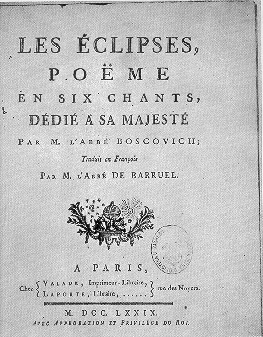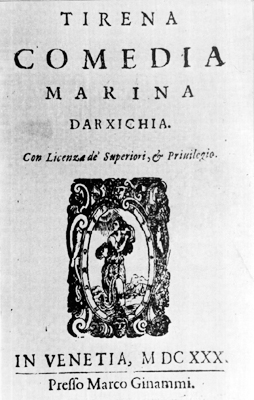|
Miroslav Krleža Institute Of Lexicography
The Miroslav Krleža Institute of Lexicography ( hr, Leksikografski zavod Miroslav Krleža or LZMK) is Croatia's national lexicographical institution. Based in Zagreb, it was originally established in 1950 as the national lexicographical institute of the Socialist Federal Republic of Yugoslavia. It was renamed after its founder, the Croatian writer Miroslav Krleža, in 1983. History The institute was founded in 1950 as the Lexicographical Institute of the Federal People's Republic of Yugoslavia (''Leksikografski zavod FNRJ'') and was renamed the Yugoslav Lexicographical Institute (''Jugoslavenski leksikografski zavod'', ''JLZ'') in 1964. Its founder and longtime director was writer Miroslav Krleža, with Mate Ujević as the chief editor. It was based in Zagreb, with branches in Ljubljana and Belgrade. After Krleža's death in 1981, the institute was renamed as the Yugoslav Lexicographical Institute "Miroslav Krleža" (''Jugoslavenski leksikografski zavod "Miroslav Krleža"'' ... [...More Info...] [...Related Items...] OR: [Wikipedia] [Google] [Baidu] |
Miroslav Krleža Lexicographical Institute In Zagreb 02
Miroslav may refer to: * Miroslav (given name), a Slavic masculine given name * ''Young America'' (clipper) or ''Miroslav'', an Austrian clipper ship in the Transatlantic case oil trade * Miroslav (Znojmo District), a town in the Czech Republic See also * Miroslava (other) Miroslava may refer to: * Miroslava (actress), Mexican actress in the 1950s ** ''Miroslava'' (film), a 1993 film about the actress * Miroslava of Bulgaria, a daughter of tsar Samuil of Bulgaria * Miroslava, Iași, a commune in Iaşi County, Romani ... * Mirosław (other) {{disambiguation ... [...More Info...] [...Related Items...] OR: [Wikipedia] [Google] [Baidu] |
Croatian Biographical Lexicon
''Croatian Biographical Lexicon'' ( hr, Hrvatski biografski leksikon) is a multi-volume biographical and bibliographical encyclopedia in Croatian, published by the Miroslav Krleža Institute of Lexicography. It contains biographies of prominent Croats, as well as foreigners who participated in Croatian public life and have left their mark on the history of Croatia. The project was launched in the second half of the 1970s. Seven volumes have been published so far with a total of 10,218 articles (3,524 illustrations). The Editor-in-Chief of the first volume was Nikica Kolumbić, of the second volume Aleksandar Stipčević, and since 1990 the Chief Editor has been Trpimir Macan Trpimir Macan (born August 20, 1935) is a Croatian historian and lexicographer. He was born in Dubrovnik. He studied history in Zagreb and Sarajevo, where he graduated in 1959. In 1971 he received his Ph.D. in Zagreb with a thesis ''Life and work .... Many of the biographies in the Lexicon have been researc ... [...More Info...] [...Related Items...] OR: [Wikipedia] [Google] [Baidu] |
Research Institutes Established In 1950
Research is " creative and systematic work undertaken to increase the stock of knowledge". It involves the collection, organization and analysis of evidence to increase understanding of a topic, characterized by a particular attentiveness to controlling sources of bias and error. These activities are characterized by accounting and controlling for biases. A research project may be an expansion on past work in the field. To test the validity of instruments, procedures, or experiments, research may replicate elements of prior projects or the project as a whole. The primary purposes of basic research (as opposed to applied research) are documentation, discovery, interpretation, and the research and development (R&D) of methods and systems for the advancement of human knowledge. Approaches to research depend on epistemologies, which vary considerably both within and between humanities and sciences. There are several forms of research: scientific, humanities, artistic, ec ... [...More Info...] [...Related Items...] OR: [Wikipedia] [Google] [Baidu] |
1950 Establishments In Yugoslavia
Year 195 ( CXCV) was a common year starting on Wednesday (link will display the full calendar) of the Julian calendar. At the time, it was known as the Year of the Consulship of Scrapula and Clemens (or, less frequently, year 948 ''Ab urbe condita''). The denomination 195 for this year has been used since the early medieval period, when the Anno Domini calendar era became the prevalent method in Europe for naming years. Events By place Roman Empire * Emperor Septimius Severus has the Roman Senate deify the previous emperor Commodus, in an attempt to gain favor with the family of Marcus Aurelius. * King Vologases V and other eastern princes support the claims of Pescennius Niger. The Roman province of Mesopotamia rises in revolt with Parthian support. Severus marches to Mesopotamia to battle the Parthians. * The Roman province of Syria is divided and the role of Antioch is diminished. The Romans annexed the Syrian cities of Edessa and Nisibis. Severus re-establish his head ... [...More Info...] [...Related Items...] OR: [Wikipedia] [Google] [Baidu] |
Enciklopedija Jugoslavije
The ''Encyclopedia of Yugoslavia'' ( sh-Latn-Cyrl, separator=" / ", Enciklopedija Jugoslavije, Енциклопедија Југославије) was the national encyclopedia of the Socialist Federal Republic of Yugoslavia. It was published by the Yugoslav Lexicographical Institute (Zagreb) under the direction of Miroslav Krleža. Lawrence S. Thompson reviewed the Encyclopedia so: The first volume (A-Bosk) of the new Encyclopedia of Yugoslavia deserves attention not only as an important general reference work on Yugoslavia but also for the very extensive attention devoted to libraries, historical bibliography, archives, and other related subjects. Volumes First edition The first edition consists of 8 volumes, issued from 1955 to 1971. It was printed in 30,000 copies. Second edition Work on the second edition started in 1980, but was not finished due to the Yugoslav wars The Yugoslav Wars were a series of separate but related#Naimark, Naimark (2003), p. xvii. ethni ... [...More Info...] [...Related Items...] OR: [Wikipedia] [Google] [Baidu] |
Slavic Review
The ''Slavic Review'' is a major peer-reviewed academic journal publishing scholarly studies, book and film reviews, and review essays in all disciplines concerned with Russia, Central Eurasia, and Eastern and Central Europe. The journal's title, though pointing to its roots in Slavic studies, does not fully encompass the range of disciplines represented or peoples and cultures examined. History The journal has been published quarterly under the current name since 1961 by the American Association for the Advancement of Slavic Studies (since 2010 named Association for Slavic, East European, and Eurasian Studies, continuing the series published by the same association since 1941 under different names: ''Slavonic Year-Book. American Series'' (1941), ''Slavonic and East European Review. American Series'' (1943–1944), ''American Slavic and East European Review'' (1945–1961). Under the current name, the subtitle of the journal has changed over the years to reflect changing termi ... [...More Info...] [...Related Items...] OR: [Wikipedia] [Google] [Baidu] |
Croatian Language
Croatian (; ' ) is the standardized variety of the Serbo-Croatian pluricentric language used by Croats, principally in Croatia, Bosnia and Herzegovina, the Serbian province of Vojvodina, and other neighboring countries. It is the official and literary standard of Croatia and one of the official languages of the European Union. Croatian is also one of the official languages of Bosnia and Herzegovina and a recognized minority language in Serbia and neighboring countries. Standard Croatian is based on the most widespread dialect of Serbo-Croatian, Shtokavian, more specifically on Eastern Herzegovinian, which is also the basis of Standard Serbian, Bosnian, and Montenegrin. In the mid-18th century, the first attempts to provide a Croatian literary standard began on the basis of the Neo-Shtokavian dialect that served as a supraregional ''lingua franca'' pushing back regional Chakavian, Kajkavian, and Shtokavian vernaculars. The decisive role was played by Croatian Vukovians, ... [...More Info...] [...Related Items...] OR: [Wikipedia] [Google] [Baidu] |
Turopolje
Turopolje () is a region in Croatia situated between the capital city Zagreb and Sisak. The administrative center of the region Turopolje is the town of Velika Gorica. Geography Turopolje forms a part of Posavina, a region to the south of Zagreb bordering the right banks of the Sava river on the east, and the Vukomericke Gorice hills to the southwest. It extends across an alluvial plain 45 km in length and up to 23 km in width. The area of the region occupies an area of about 600 km2, with an average elevation of 110 m above sea level. Turopolje is divided into two halves by the river Odra and its tributary Lomnica. Etymology The name ''Turopolje'' stems from the Croatian and Old Slavic word ''Tur'', i.e. aurochs (''Bos primigenius''), a type of wild cattle present in the area during the Middle Ages In the history of Europe, the Middle Ages or medieval period lasted approximately from the late 5th to the late 15th centuries, similar to the p ... [...More Info...] [...Related Items...] OR: [Wikipedia] [Google] [Baidu] |
Antun Gustav Matoš
Antun Gustav Matoš (; 13 June 1873 – 17 March 1914) was a Croatian poet, short story writer, journalist, essayist and travelogue writer. He is considered the champion of Croatian modernist literature, opening Croatia to the currents of European modernism. Life Matoš was born in Tovarnik, in the eastern Croatian region of Syrmia on 13 June 1873. In September 1875, when he was two years old, his parents moved to Zagreb, where he went to primary and secondary school. His attempt to study at the Military Veterinary College in Vienna in 1891 ended in failure due to an illness. He was conscripted in 1893, but he deserted in August 1894, fleeing from Croatia to Šabac and then to Belgrade. He spent the next three years in Belgrade, living in his own words as a "cello player, journalist, and man of letters". In January 1898 he traveled to Vienna and Munich, stayed for a while in Geneva, and then moved to Paris in 1899, where he would stay for five years. During his stay in Paris ... [...More Info...] [...Related Items...] OR: [Wikipedia] [Google] [Baidu] |
Ruđer Bošković
Roger Joseph Boscovich ( hr, Ruđer Josip Bošković; ; it, Ruggiero Giuseppe Boscovich; la, Rogerius (Iosephus) Boscovicius; sr, Руђер Јосип Бошковић; 18 May 1711 – 13 February 1787) was a physicist, astronomer, mathematician, philosopher, diplomat, poet, theologian, Jesuit priest, and a polymath from the Republic of Ragusa.Biography: Roger Joseph Boscovich, S.J. Fairchild University website. He studied and lived in Italy and France where he also published many of his works. Boscovich produced a precursor of and made many contributions to |
Marin Držić
Marin Držić (; also ''Marino Darza'' or ''Marino Darsa''; 1508 – 2 May 1567) was a Croatian writer from Republic of Ragusa. He is considered to be one of the finest Renaissance playwrights and prose writers of Croatian literature. Life Born into a large and well to do family (with 6 sisters and 5 brothers) in Dubrovnik, Držić was trained and ordained as a priest — a calling very unsuitable for his rebel temperament. Marin's uncle was another famous author Džore Držić. Ordained in 1526, Držić was sent in 1538 to Siena in Tuscany to study the Church Canon Law, where his academic results were average. Thanks to his extroverted and warm personality, he is said to have captured the hearts of his fellow students and professors, and was elected to the position of rector of the university. Losing interest in his studies, Marin returned to the Dubrovnik Republic in 1543. Here he became an acquaintance of Austrian adventurer Christoph Rogendorf, then at odds with ... [...More Info...] [...Related Items...] OR: [Wikipedia] [Google] [Baidu] |






